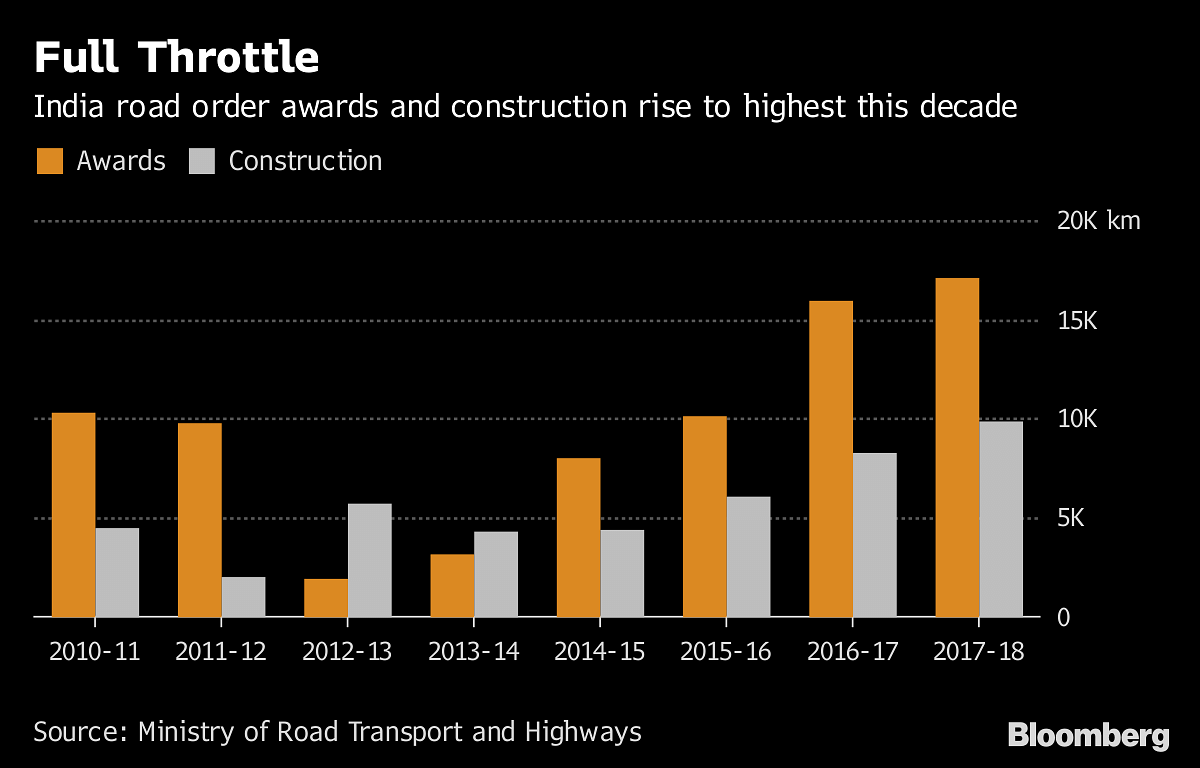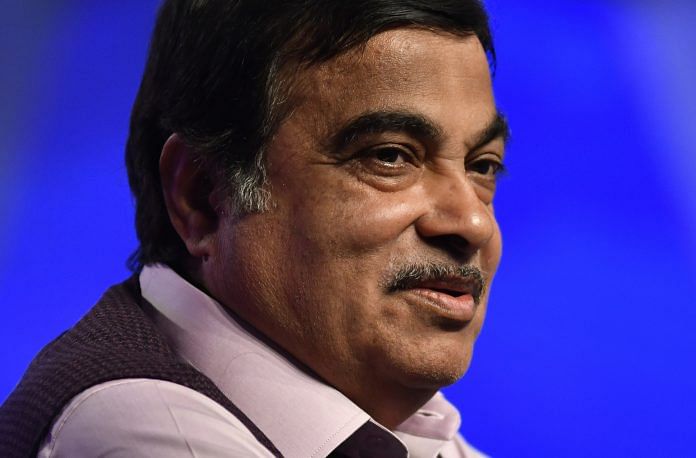Bankers are dithering about lending decisions as they fear that if a decision goes wrong, they could be subject to probes.
New Delhi/Mumbai: Risk-averse bankers are slowing construction of infrastructure projects in India, Nitin Gadkari, the country’s minister for road transport and highways, said.
Loans to road contractors and bank guarantees for projects have dried up, threatening to stall India’s plans to build more than 84,000 kilometers (52,195 miles) of roads by 2022, Gadkari said, addressing the Bloomberg India Economic Forum on Tuesday.
“For the sake of industry, sake of investment, sake of contractors, creating jobs, for the sake of economy, we need positive support from banks,” he said. “They are giving support but it is a slow process.”

India’s plan to modernize the highways network requires billions of dollars of investment but the worst bad-loan ratio after Italy among the world’s 20 largest economies has led bankers to shy away from this sector. Public lenders account for 90 percent of the $210 billion of stressed debt on Indian banks’ balance sheets.
Bankers are dithering about lending decisions as they fear that if a decision goes wrong even 5 to 7 years down the line, they could be subject to probes the way some of their peers are undergoing now, Rajnish Kumar, chairman of State Bank of India, said in May.
Bad Debts
State-run National Highways Authority of India last month borrowed 250 billion rupees ($3.45 billion) from the State Bank of India, the country’s largest lender. Yet, most Indian lenders, reeling under the burden of bad debts, need to be convinced that lending to “our roads sector is very safe,” Gadkari said.
“A lot of road builders will drift towards bonds and money market instruments mainly because of the capacity constraints that banks have,” said Shubham Jain, vice president at ICRA Ltd. “Rising interest rates and limited tenures offered by banks will also push developers to consider more bond offerings.”
State Bank of India, the country’s largest bank by assets, has about 60 percent to 70 percent of its bad loans in the infrastructure sector, Managing Director Arijit Basu said at the Bloomberg India Economic Forum in Mumbai. That’s one of the reasons why banks were more cautious about lending, whether it’s power or road projects.
“We have to lend, and yet lend in a risk-mitigated manner,” Basu said. “We want our banks to be stable and resilient.”
India will continue to raise funds by auctioning stretches of highways to be leased for 30 years in return for upfront funds that can be used to build more roads. The government needs funds for its ‘Bharatmala’ project that seeks to connect business centers via a 35,000 km network. Almost 10,000 kms were added in the fiscal year ended in March, and contracts for a further 17,000 kilometers were awarded.
Electric Vehicles
The government has decided to exempt electric vehicles and automobiles that run on alternative fuel from permit requirements, Gadkari said.
India, the world’s fourth-largest automobile market, is changing its electric vehicles’ roadmap to focus on battery-driven public transport from all out electrification by 2030. Amid rising prices of oil, India’s biggest import, the country wants to promote battery-powered public transport and two- and three-wheelers, which currently guzzle 68 percent of its fuel. – Bloomberg






